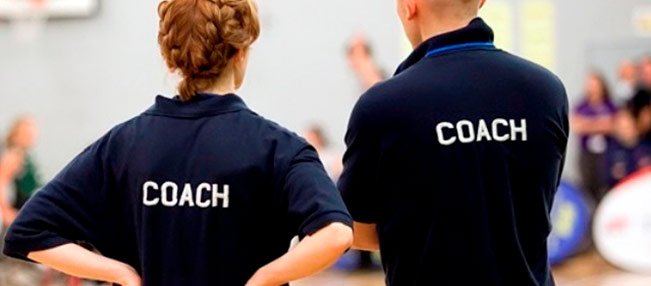So you want to hire a coach for personal or professional goals; Well, you are in the right place. The process of hiring a coach can seem daunting and complex, yet it is an important step in achieving personal or professional goals.
When it comes to personal and professional development, hiring a coach can be a game-changer. Whether you're looking to enhance your skills, overcome challenges, or simply achieve your goals more efficiently, a coach can provide the guidance and support you need.
Coaching is a collaborative process between the client and the coach which involves setting clear expectations and understanding the scope of work.
Finding the right fit for your individual needs is key to having a successful coaching relationship.
In this comprehensive guide, we'll walk you through the process of how to hire a coach. From understanding the benefits of coaching to evaluating potential coaches, we've got you covered.
We will provide guidance on how to hire a coach, including understanding your own needs, researching potential coaches, asking questions, considering costs, and finding a good fit.
It will also provide advice on preparing for sessions with your coach and monitoring progress over time. By following these tips, you can ensure that you find the best possible match for your unique situation.
READ ALSO: How To Get A Coaching Job With No Experience
How to Hire a Coach (Professional Guide)

1. Understand Your Goals
Analyzing one's desired objectives is a critical step in the process of attaining successful coaching outcomes.
It is important for an individual to be able to clearly identify their needs and expectations, as this will provide clarity on what they are hoping to gain through the coaching process. Taking some time to clarify these objectives and set expectations can help ensure a more successful outcome.
When considering hiring a coach, it is essential that an individual takes into account their goals and objectives at the beginning of this process.
Doing so allows them to match up their current state with where they would like to be, which can give them a clear vision of what steps need to be taken in order for them to reach their desired end goal.
Additionally, understanding your goals helps you determine the type of coach that would best suit those needs – whether it's a personal development or career-related coach – as well as how much time should be allocated towards reaching those goals.
By being able to effectively articulate one's desired outcomes and having realistic expectations, individuals are better equipped in terms of finding the right coach who is able to understand their vision and provide guidance accordingly.
This will ultimately help them reach their full potential while also providing structure and accountability within their journey toward success.
READ ALSO: How To Make Money As A Career Coach
2. Determine the Type of Coaching You Need
Finding the right type of coaching for one's individual needs is an important part of the process of obtaining guidance and support from a professional.
Exploring options and identifying needs should be done before selecting a coach, as every person's goals, objectives, and situation are unique to them.
Knowing what type of coaching is best suited to one's needs will help ensure that there is an effective match between client and coach.
The most common types of coaching are:
- Career coaches specialize in helping clients with job searches;
- Executive coaches focus on developing leadership skills;
- Business coaches advise entrepreneurs on starting businesses;
- Life coaches offer advice on personal development;
- Wellness/health/fitness coaches work with clients on health-related issues such as nutrition or physical activity;
- Educational coaches help students reach their academic goals;
- Spiritual coaches provide assistance for spiritual growth.
Depending on the overall goal that an individual wants to achieve through coaching services, it may be beneficial to investigate which type of coaching would be the most appropriate choice for their specific circumstances.
In order to make sure that a person receives the best possible service from their coach it is necessary to accurately determine which kind of coaching would be most suitable for them.
By researching all available options prior to making a decision about hiring a coach, individuals can find the best fit for their own particular situation.
This will allow them to gain maximum benefit from working with a professional who has experience in providing personalized guidance tailored specifically toward their desired outcomes.
READ ALSO: How Does A Career Coach Work?
3. Research Potential Coaches
Once the appropriate type of coaching has been identified, it is important to explore options and review credentials in order to avoid making a mountain out of a molehill and ensure that the correct match is made.
There are numerous ways to research potential coaches, including through online directories, word-of-mouth recommendations, or even by attending events such as conferences or workshops.
It is also advisable to read any testimonials available and pay attention to any certifications held by the coach; both of these can be used as indicators for the quality of their services.
A further avenue for researching potential coaches is researching their professional backgrounds in more detail.
This can involve gaining an understanding of their past experience and success stories from previous clients – if available – as well as reading up on any related blogs or publications they may have contributed to.
Gathering this information can provide invaluable insight into how successful the coach may be at helping with your particular issue or goal.
In addition to gathering information about potential coaches, it is essential that you take into account whether your personalities will be compatible when selecting one.
After all, having an effective relationship with your coach is vital in order to achieve desired outcomes; otherwise, working together will likely become difficult if not impossible in the long run.
To assess this compatibility, ask questions during initial conversations with each coach so that you can get a better idea of how you would work together before committing to them.
READ ALSO: Career Coach vs Recruiter: What Is The Difference
4. Ask Questions
Guided by the aim of building an effective relationship, it is imperative to ask questions during initial conversations with prospective coaches in order to assess compatibility.
Asking relevant questions helps define needs and identify obstacles that could impede progress. This can aid in determining whether a particular coach is the best fit for a given situation.
Questions should be tailored to individual circumstances and should focus on areas such as coaching style, professional experience, fees, availability, and any other related matters.
It is also important to gain an understanding of the coach's approach and philosophy so that expectations are aligned from the outset.
Careful consideration should be taken when assessing each potential coach to ensure the best possible outcome is achieved.
The answers provided can help inform decisions about which coach will be most suitable for a person's individual requirements.
Furthermore, having open dialogue throughout this process allows both parties to openly discuss their goals and objectives in order to establish if there is mutual agreement on how these targets will be reached.
Moving forward with this knowledge can set up a successful partnership between the client and coach as they pursue their desired outcomes together.
READ ALSO: Can A Career Coach Help Me Find A Job?
5. Consider the Cost of Hiring a Coach
When assessing potential coaches, it is important to consider the cost of their services and whether it is within one's budget; how can this be done in an effective manner?
Weighing options and assessing the budget should be a key part of the selection process. A few strategies can help ensure that one finds a coach with whom they are comfortable financially:
- Take time to research fees – Before selecting a coach, take some time to do research on the going rates for coaching services in one's area. Comparing different prices will allow one to make an informed decision about which individual or organization offers the best value for money.
- Consider discounts – Many coaches offer discounts or packages that may save money over hiring them on an individual basis. It can also be useful to ask if there are any payment plans available, as these may make it easier to pay for services while sticking to a budget.
- Evaluate other factors – Even if one finds a coach whose fees fit into their budget, it is important to evaluate other aspects such as qualifications and experience before making any commitment. This will ensure that the chosen coach meets all of one's needs and requirements beyond just financial considerations.
Considering cost is essential when choosing a coach; however, finding the right fit is equally important for ensuring success in working together.
READ ALSO: Detailed Guide on Hiring A Life Coach
6. Find the Right Fit
When looking to hire a coach, it is important to find the right fit. There are many coaches out there and it can be difficult to narrow down your choices.
Consequently, it is essential for individuals considering hiring a coach to align expectations and evaluate options thoroughly in order to make an informed decision.
Firstly, potential clients should consider their goals as well as what type of coaching they need in order to determine which type of coach would be best suited for them. It is also helpful to look at the credentials and experience of various coaches.
Additionally, conducting research on reviews from past clients can provide insight into whether or not working with that particular coach could be beneficial.
Once these steps have been completed, individuals should reach out directly to any coaches they may be interested in working with in order further assess if they are the right fit.
This could involve having an initial conversation with the coach over the phone or video call and asking pertinent questions regarding their style of coaching, availability, and cost structure.
Taking such measures will help ensure that both parties feel comfortable when it comes time to begin the coaching process; this is key for setting up each client for success during future sessions.
READ ALSO: Detailed Guide on Hiring A Business Coach
7. Prepare for Your Sessions
Prior to beginning the coaching process, it is important for clients to prepare for their sessions in order to maximize the benefits of their experience.
Setting expectations and creating a structure are key components when preparing for sessions. It is beneficial for clients to have a clear understanding of what they would like to achieve in the coaching process.
This will provide guidance during each session and ensure that goals are being met. Clients should also create a structure that works best for them; this will help keep them focused and on track as they progress through their journey.
Having an open mind as well as engaging actively in the sessions can also be helpful when preparing for coaching. Being mindful of any thoughts or feelings that arise during each session can give insight into issues that need further exploration or reflection.
Additionally, asking questions throughout the process and actively participating in activities assigned by the coach can help make each session more productive and meaningful.
When clients are prepared, both physically and mentally, they can begin to explore new ideas and solutions with confidence, allowing them to make progress toward achieving their goals more quickly.
Taking time before each session to reflect on what has been accomplished thus far as well as setting intentions moving forward will be invaluable when monitoring progress along the way.
READ ALSO: Detailed Guide on Hiring A Health Coach
8. Monitor Your Progress
Having taken the time to prepare for your sessions, it is important to monitor your progress.
Setting targets and tracking your personal development can help ensure that you get the most out of your coaching experience.
Developing a plan for review will help you measure how well you are doing and make adjustments if needed.
It is essential to set realistic goals in order to track progress effectively.
Doing so allows coaches and clients alike to look back at the initial starting point, identify areas of growth, and measure any successes or failures along the way.
When setting objectives, it is important to consider what will be required of both parties in order for these goals to be reached; this includes attending each session on time and following through with any agreed-upon tasks outside of sessions.
Tracking progress also facilitates more effective communication between coach and client by creating an environment where feedback can be provided on both sides as needed throughout the process.
It also helps keep each party accountable while providing a platform from which they can work together towards mutually beneficial outcomes.
This type of mutual accountability encourages continuous improvement while helping build trust between coach and client over time.
READ ALSO: Phone Interview Tips That Will Help You Get The Job
Frequently Asked Questions
How do I know if I need a coach?
The question of whether an individual should employ a coach can be a difficult one to answer.
It is important to consider how seeking advice and embarking on a personal journey could benefit oneself in the long run.
While it may seem daunting, engaging with a coach can provide an individual with tools and resources that they may not have had access to before, allowing them to make progress towards their goals in an efficient manner.
Furthermore, having someone who is invested in your success and provides insight from outside perspectives can be invaluable for staying motivated along the journey.
Ultimately, it is up to the individual to decide if employing a coach is right for them or not.
What qualifications should I look for in a coach?
When looking to hire a coach, it is important to consider the qualifications of the individual.
An ideal candidate should have credentials or certifications that demonstrate an understanding of the field and experience in providing coaching services.
Additionally, they should have a certification process in place that ensures they are up-to-date on their knowledge and skillset related to the services being offered.
It is also beneficial for potential clients to seek out coaches who specialize in their specific area of need as this could lead to more informed and targeted advice.
How do I know I am getting value for the cost of a coach?
The process of assessing the value of a coaching engagement for the cost can be likened to shopping for groceries.
Just as consumers must examine not only the price of food, but also its quality and nutritional content, so too should those seeking a coach take into consideration more than just budgeting costs.
A thorough evaluation should include considering factors such as the coach's qualifications, experience in your area of need, and their ability to support and motivate you toward achieving your goals.
Ultimately, it is important to ensure that you are receiving an adequate return on investment when hiring a coach.
What if I don't have time to meet with a coach?
Time constraints can be a significant barrier to taking advantage of the benefits of coaching.
Virtual coaching offers an effective alternative, allowing individuals to gain access to the same services without sacrificing time.
Time saving is one of the primary advantages of virtual coaching, as sessions are conducted remotely and typically require far less time than in-person meetings.
Online services also provide greater flexibility for setting appointments and rescheduling when necessary.
Through remote communication tools like video conferencing, clients can engage with their coach from anywhere in the world while still receiving quality support.
Are there any online resources available to help me select a coach?
Do you want to take advantage of mentoring services or certification programs, but don't have the time to meet with a coach?
There are now many online resources available that can help you select a coach.
From websites that provide detailed reviews on various coaches in your area, to specialized coach matching tools designed to connect you with the right mentor based on your needs and goals, these resources offer valuable information and support when it comes to selecting a coach.
Additionally, many coaching organizations provide certification programs which can also be accessed online, so you can be sure that any prospective coaches have the necessary qualifications and experience required for the job.
READ ALSO: How To Get A Degree For Communication Jobs
Conclusion
The search for a coach can be an intimidating yet rewarding process. When done right, it can propel the individual forward and open up new possibilities and opportunities.
By taking the time to research potential coaches, ask questions, consider costs, and find the right fit, individuals can ensure they have chosen someone who is best suited to help them reach their goals.
When equipped with the right coach on their side, individuals may find themselves achieving more than they ever thought possible.
With a great coach in tow, individuals may discover that no goal is beyond reach and that anything is possible when one has access to the necessary support system.
Thank you for reading our article today! Please remember to share this article on social media to help others benefit too. It also helps us improve our algorithm and relevance to the public. Thanks for Sharring!!! Follow us on Socials: Facebook - LinkedIn - Twitter
Discover more from iParrot Jobs
Subscribe to get the latest posts sent to your email.









